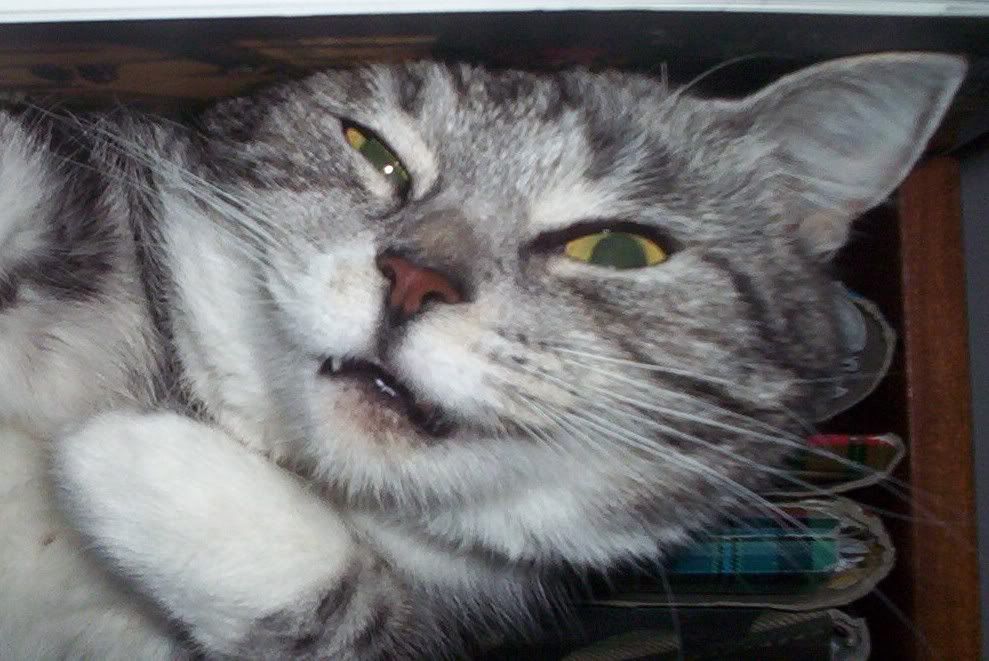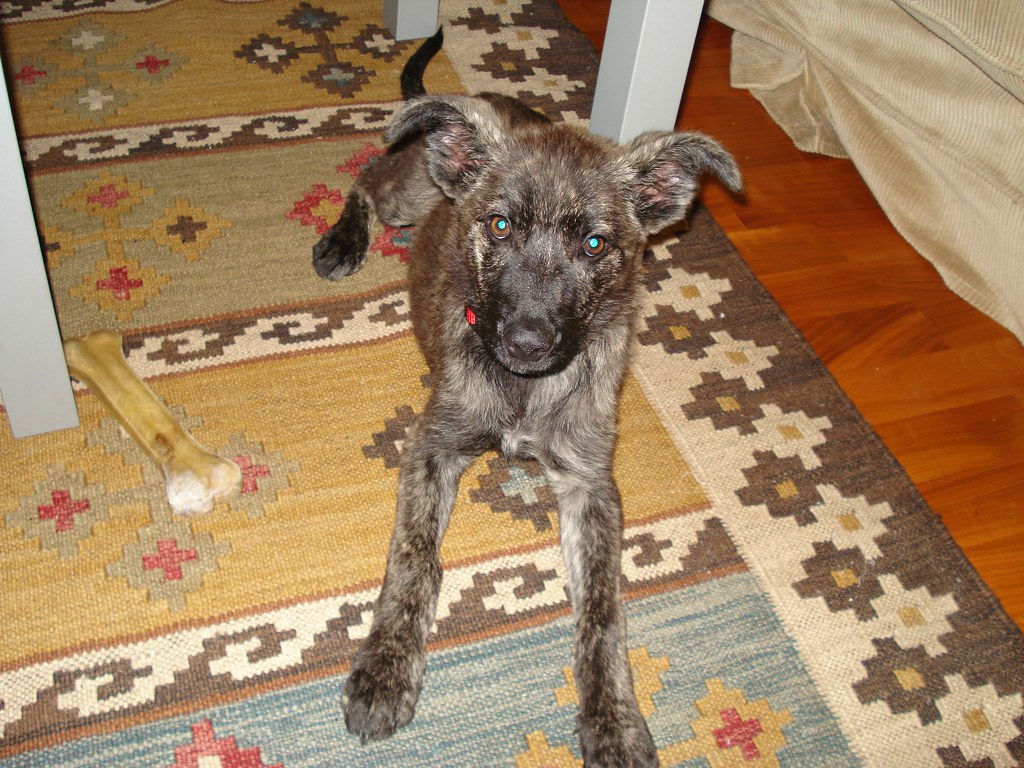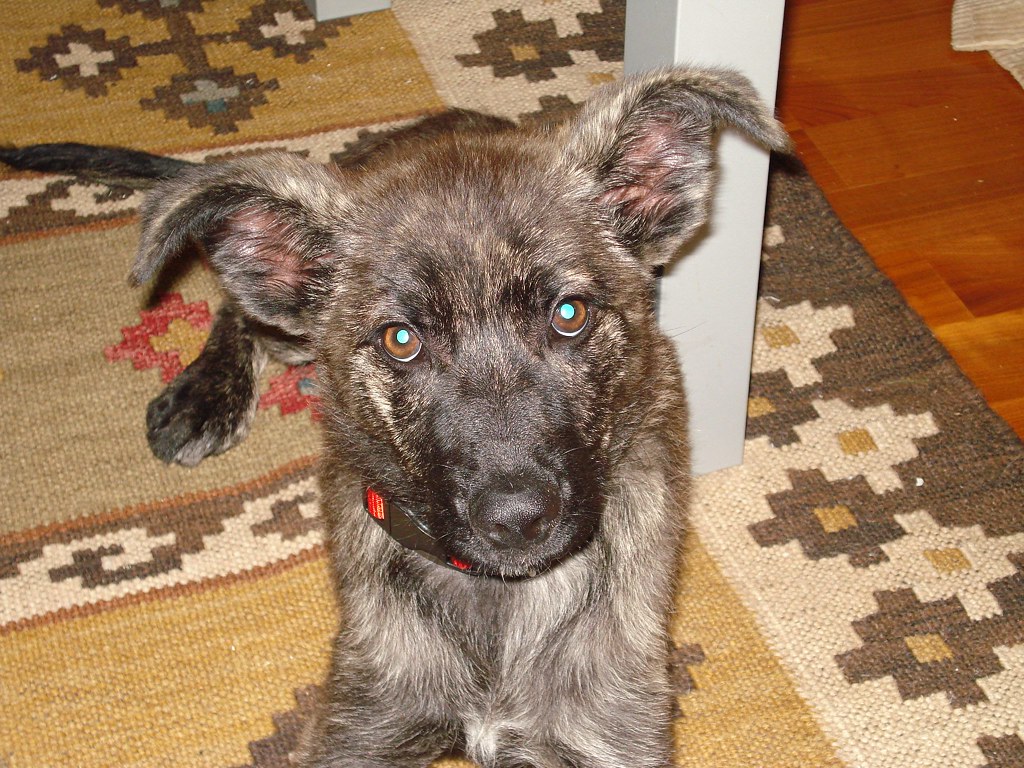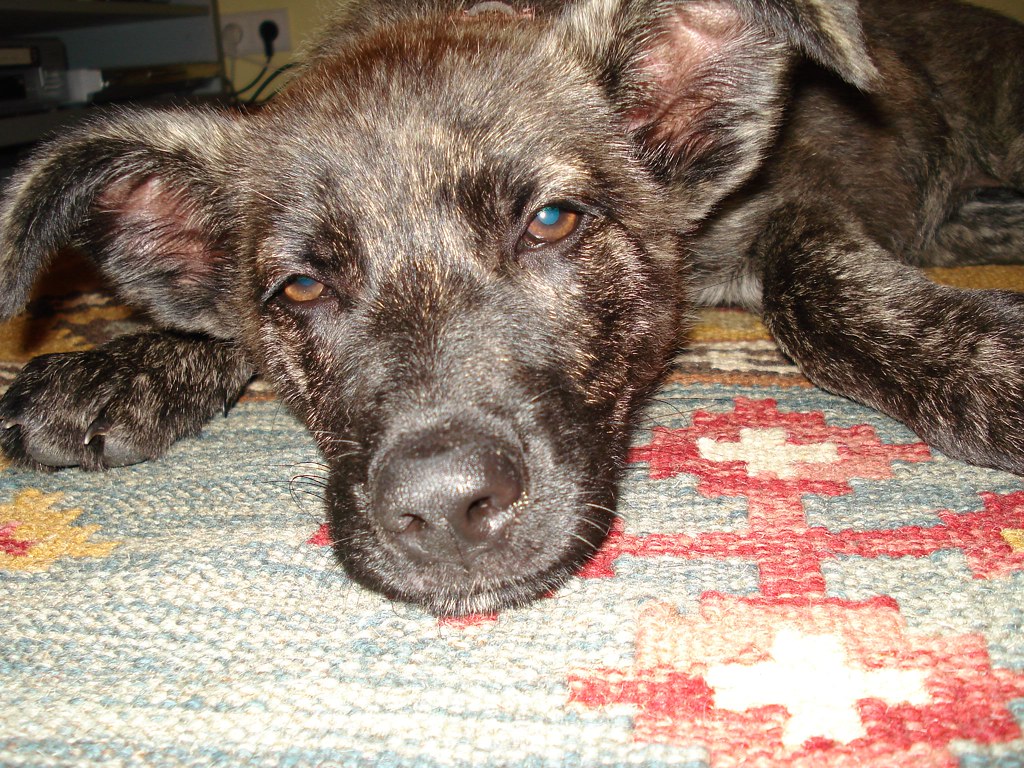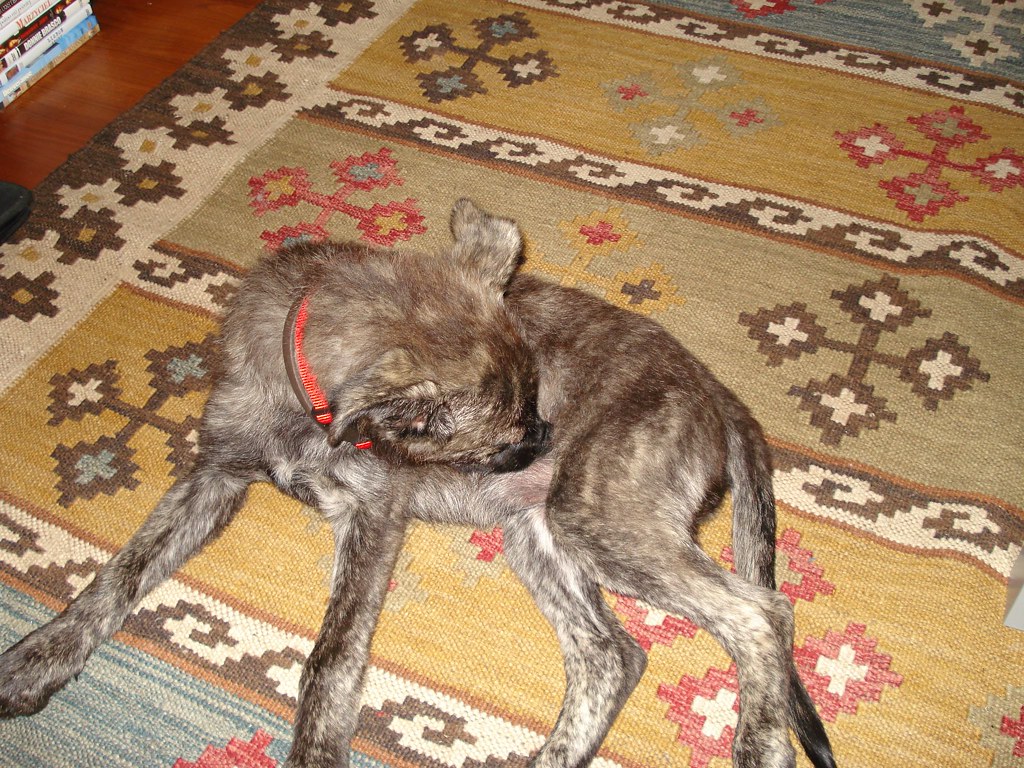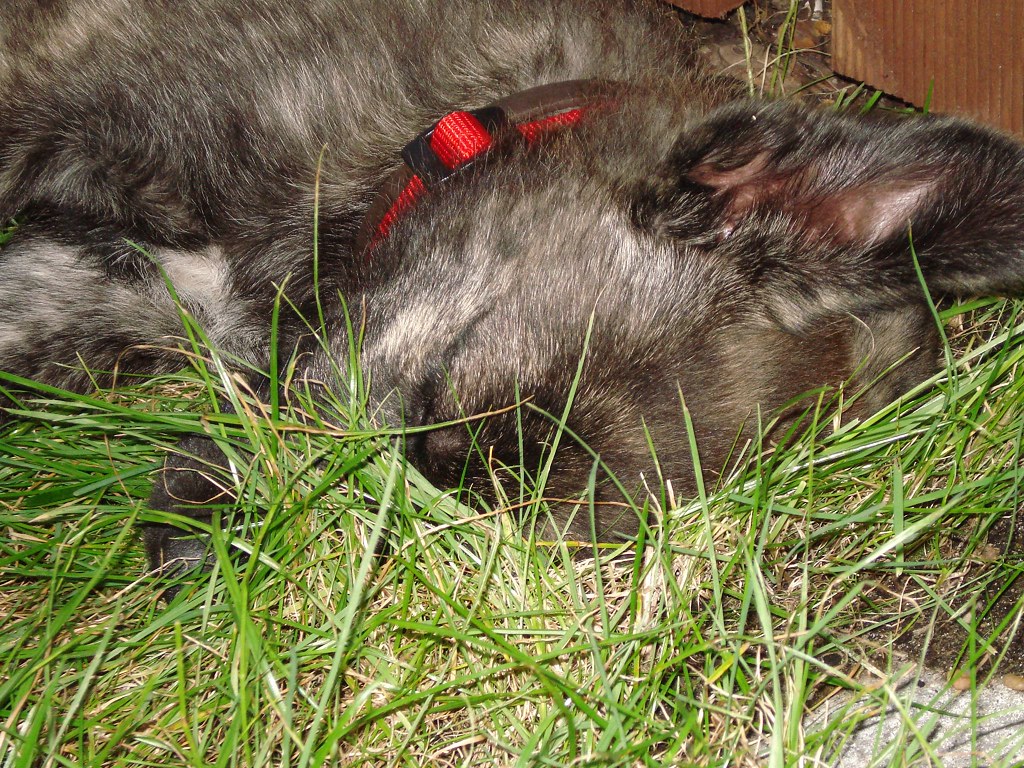Wednesday, August 15, 2007
Monday, August 13, 2007
Writer's block sucks
Especially when it forces one to come up with a title like that. How banal.
I've got a deadline I have to meet on Friday for a piece for a little bi-monthly I write for. Tomorrow I've got work to do, Wednesday I may be out adopting a dog (that's right), Thursday and Friday I'll be swamped at the office. Today's gotta be the day I write these bloody 800 words. I can't think of any ideas for the piece, so I figured I'd try to work the kinks out here. It's generally supposed to be Poland-based. Preferably humorous. You'd think there would be plenty of material.
But there's not. After living in Poland for 6 years, it seems little surprises me. The little quirks that Polish society has, I've long gotten over. I mean, they still tick me off, but I've gotten used to them. I often wish I could see the world the way fellow p3'er Becca does - to be able to see a story in just about everything.
I'm amused by the experiences of a new colleague at work. 22 and fresh from Britain, life in Poland has hit him hard. The pay is far lower and the bureaucracy far heftier. Though he's from the European Union he still has to get a work permit (or perhaps "permission slip" is more accurate - I've been told that it is somewhat easier to get). He's amazed at how much the girls love the fact that he's a foreigner and doesn't speak Polish, and that they actually give him their REAL NUMBERS when he asks for them at a bar or disco.
He's curious about every aspect of life here, so much so that I often find I don't know the answer to his questions - I had long ago stopped asking them myself and accepted the unknowns as a fact of life.
And now I think I have my topic. The seasoned expat's view on the neophyte, and the neophyte's view of Poland - there ought to be something amusing in that.
But still I find myself lost for words. What exactly were the quirks that got him so riled? Humor is in the specifics. Tomorrow I'll see him. I'll ask him. Maybe I can write out a skeleton this evening, and fill in the details tomorrow.
Every day it seems the symptoms of writer's block manifest themselves - I'm endlessly trying to find the right words. This is why my blogging has slowed to a crawl. I'm too lazy to expend all of that effort. It's been so long now that I feel like I've always had it. Was that me who used to blog every day?
But now I've blogged and come up with an idea. So maybe things are changing. I'd love to be able to write every day again - it feels like the block has been there for ages.
I've got a deadline I have to meet on Friday for a piece for a little bi-monthly I write for. Tomorrow I've got work to do, Wednesday I may be out adopting a dog (that's right), Thursday and Friday I'll be swamped at the office. Today's gotta be the day I write these bloody 800 words. I can't think of any ideas for the piece, so I figured I'd try to work the kinks out here. It's generally supposed to be Poland-based. Preferably humorous. You'd think there would be plenty of material.
But there's not. After living in Poland for 6 years, it seems little surprises me. The little quirks that Polish society has, I've long gotten over. I mean, they still tick me off, but I've gotten used to them. I often wish I could see the world the way fellow p3'er Becca does - to be able to see a story in just about everything.
I'm amused by the experiences of a new colleague at work. 22 and fresh from Britain, life in Poland has hit him hard. The pay is far lower and the bureaucracy far heftier. Though he's from the European Union he still has to get a work permit (or perhaps "permission slip" is more accurate - I've been told that it is somewhat easier to get). He's amazed at how much the girls love the fact that he's a foreigner and doesn't speak Polish, and that they actually give him their REAL NUMBERS when he asks for them at a bar or disco.
He's curious about every aspect of life here, so much so that I often find I don't know the answer to his questions - I had long ago stopped asking them myself and accepted the unknowns as a fact of life.
And now I think I have my topic. The seasoned expat's view on the neophyte, and the neophyte's view of Poland - there ought to be something amusing in that.
But still I find myself lost for words. What exactly were the quirks that got him so riled? Humor is in the specifics. Tomorrow I'll see him. I'll ask him. Maybe I can write out a skeleton this evening, and fill in the details tomorrow.
Every day it seems the symptoms of writer's block manifest themselves - I'm endlessly trying to find the right words. This is why my blogging has slowed to a crawl. I'm too lazy to expend all of that effort. It's been so long now that I feel like I've always had it. Was that me who used to blog every day?
But now I've blogged and come up with an idea. So maybe things are changing. I'd love to be able to write every day again - it feels like the block has been there for ages.
Wednesday, August 02, 2006
We've got a place for you
The moment I saw Tomek waddle onto the field, a smile crept over my face. At about 5’11” and around 250 pounds, he comes much closer to resembling a bowling ball than an athlete.
That is, a European athlete. In the United States, Tomek is the type of guy you expect to have played plenty of American football throughout his life. Being large, lumbering and difficult to move, he came closer to Homer Simpson than to David Beckham, but in American football a husky stature like Tomek’s can be invaluable. Plenty of raw power was coiled up in Tomek’s tree-trunk legs, and he had boa constrictors for biceps. He wasn’t going to win any beauty contests, but he was exactly what we were looking for.
After just a few weeks as assistant coach of the Warsaw Eagles, I could see that a talented team was beginning to take shape. We had a big, strong defensive line, a trio of pit bulls at linebacker, and a diminutive but quick defensive backfield. On offense, we had an experienced quarterback and a speedy, hard-hitting running back. However, on the offensive line we were filling the gaps with guys who were already playing on defense, and we needed a big, powerful, aggressive player who we could rely on so that we could give our defensive specialists a rest. Tomek, though green, was the best prospect we had found so far.
Despite his size, Tomek spent most of his first practice with his face in the dirt, getting knocked over, pushed around and generally trampled upon. Size – though helpful – isn’t everything in American football. His stance was crooked, he forgot the snap count, and he wasn’t stepping into his hits. It’s a common mistake. Your typical European sport discourages hitting. Coming into contact with another player violently can get you penalized or even removed from the game. With Tomek, as with the others, one of the hardest parts of teaching American football is teaching the necessity to hit. Beginners tend to try to avoid the hit at the last second, turn their bodies in an attempt not to get hurt, or catch the hit. Unfortunately for Tomek, when he suited up in pads for the first time during that initial practice, this was exactly what he attempted to do – and probably against the hardest hitter on our team.
The result was either hilarious or pitiful, depending on how much sympathy you had for Tomek. With a thunderous THWAP! Tomek was lying on his back on the ground.
“Ow... That hurts.” Tomek groaned with surprise.
“Welcome to American football,” I chuckled. “Do you need to sit out for a second?”
“No way,” came his retort. “I wanna do it again!”
Yes, there was hope for this one.
After two hours of mostly getting the crap kicked out of him, Tomek finally made a great block – knocking the defender flat on his back, pouncing on him – crushing him really – until the play was over. He had performed one of the most humiliating blocks for defenders, a so-called pancake block, without even knowing it. I was delighted. I jogged over to congratulate him with a slap on the helmet.
He bounced up off the suffocating defensive lineman with a grin from ear to ear. “I like this game,” he gushed.
For an American living in a sea of soccer-loving Europeans, Tomek's enthusiasm warmed my heart. He had also impressed me with his determination and hard work. At the end of practice I took him aside. “We’ve got a place for you on this team,” I said. “Will you be at practice next week?”
“Of course,” he smiled. “Always.”
And just like that, I had won my first convert to American football.
In the following weeks, it became clear that along with his budding skills, a love for American football was springing up inside Tomek. He wasn’t the only one. Many of our members had never even touched an American football before joining our team this year. Some of them had spent their lives worshiping that other football – soccer – and its heroes, many of them despairing that they had neither the physique nor the natural talent to play well. Others had simply found the sport boring, and were looking for a game in which brute force was much more of a factor.
As we got closer to our first game of the year, I began holding optional practices on off days. To my surprise, Tomek attended each one, as did a steadily growing throng of eager young guys, wanting to play more, wanting to learn more. They pleaded with me to extend practice even when it was pouring rain. They would stay afterwards asking to hit a bit more, to drill a bit more, to ask questions about technique or positioning. I realized American football was giving these young men something they were missing. For many boys in the States, American football is an essential part of their development. It is a perfect conduit for the truculent tendencies of the young male. It sets rules and boundaries for them, forcing them to control their aggression, to channel it towards accomplishing constructive goals, and to use it for the good of the team. Most of Poland’s young men have no such outlet.
But I could help a few find it.
And in this way, coaching Tomek and the others gave me something I was missing too. After living in Warsaw for nearly five years, I still hadn’t found a way to give something back to my adopted home. Sure, being an English teacher, as I had been for most of my time in Poland, had given me a feeling of somehow contributing to the betterment of my community, but it was also my job, something for which I was being paid. I was receiving no financial reward for the teaching I was doing now. Still, it paid off in other ways.
The day of our first game arrived, and Tomek had significantly improved, working hard enough to make it into the starting lineup. His solid play on the left side of our offensive line that day was one of the keys to our win against a more experienced team from the Czech Republic. I was proud of him, and after the game, I found Tomek in the locker room and asked him if he had had fun.
“Are you kidding me?” he beamed – but then frowned. “I haven’t got that reach block down yet. I need to work some more on it. Will you help me with that?”
This was my reward. I had helped Tomek and the others find fulfillment in a sport which their culture tends to dismiss as quirky or arcane, but which I had known and loved nearly from birth. In giving these young men American football, I was giving them a piece of my culture, and a piece of myself. In return I got to see them grow to love the sport, and benefit from it.
I clasped Tomek on the shoulder. “Definitely,” I answered. I was no longer in Poland just because my job or my friends were here. I was in Poland to give Tomek and the others something not many others could – a place on an American football team. I was in Poland to make sure American football always has a place here for the young men who needed it.
“Great,” said Tomek, and he slapped the section of bench beside him. “Take a load off coach. Enjoy the win. There’s a place for you right here.”
“I know,” I said with a smile, and sat down. “Thanks.”
That is, a European athlete. In the United States, Tomek is the type of guy you expect to have played plenty of American football throughout his life. Being large, lumbering and difficult to move, he came closer to Homer Simpson than to David Beckham, but in American football a husky stature like Tomek’s can be invaluable. Plenty of raw power was coiled up in Tomek’s tree-trunk legs, and he had boa constrictors for biceps. He wasn’t going to win any beauty contests, but he was exactly what we were looking for.
After just a few weeks as assistant coach of the Warsaw Eagles, I could see that a talented team was beginning to take shape. We had a big, strong defensive line, a trio of pit bulls at linebacker, and a diminutive but quick defensive backfield. On offense, we had an experienced quarterback and a speedy, hard-hitting running back. However, on the offensive line we were filling the gaps with guys who were already playing on defense, and we needed a big, powerful, aggressive player who we could rely on so that we could give our defensive specialists a rest. Tomek, though green, was the best prospect we had found so far.
Despite his size, Tomek spent most of his first practice with his face in the dirt, getting knocked over, pushed around and generally trampled upon. Size – though helpful – isn’t everything in American football. His stance was crooked, he forgot the snap count, and he wasn’t stepping into his hits. It’s a common mistake. Your typical European sport discourages hitting. Coming into contact with another player violently can get you penalized or even removed from the game. With Tomek, as with the others, one of the hardest parts of teaching American football is teaching the necessity to hit. Beginners tend to try to avoid the hit at the last second, turn their bodies in an attempt not to get hurt, or catch the hit. Unfortunately for Tomek, when he suited up in pads for the first time during that initial practice, this was exactly what he attempted to do – and probably against the hardest hitter on our team.
The result was either hilarious or pitiful, depending on how much sympathy you had for Tomek. With a thunderous THWAP! Tomek was lying on his back on the ground.
“Ow... That hurts.” Tomek groaned with surprise.
“Welcome to American football,” I chuckled. “Do you need to sit out for a second?”
“No way,” came his retort. “I wanna do it again!”
Yes, there was hope for this one.
After two hours of mostly getting the crap kicked out of him, Tomek finally made a great block – knocking the defender flat on his back, pouncing on him – crushing him really – until the play was over. He had performed one of the most humiliating blocks for defenders, a so-called pancake block, without even knowing it. I was delighted. I jogged over to congratulate him with a slap on the helmet.
He bounced up off the suffocating defensive lineman with a grin from ear to ear. “I like this game,” he gushed.
For an American living in a sea of soccer-loving Europeans, Tomek's enthusiasm warmed my heart. He had also impressed me with his determination and hard work. At the end of practice I took him aside. “We’ve got a place for you on this team,” I said. “Will you be at practice next week?”
“Of course,” he smiled. “Always.”
And just like that, I had won my first convert to American football.
In the following weeks, it became clear that along with his budding skills, a love for American football was springing up inside Tomek. He wasn’t the only one. Many of our members had never even touched an American football before joining our team this year. Some of them had spent their lives worshiping that other football – soccer – and its heroes, many of them despairing that they had neither the physique nor the natural talent to play well. Others had simply found the sport boring, and were looking for a game in which brute force was much more of a factor.
As we got closer to our first game of the year, I began holding optional practices on off days. To my surprise, Tomek attended each one, as did a steadily growing throng of eager young guys, wanting to play more, wanting to learn more. They pleaded with me to extend practice even when it was pouring rain. They would stay afterwards asking to hit a bit more, to drill a bit more, to ask questions about technique or positioning. I realized American football was giving these young men something they were missing. For many boys in the States, American football is an essential part of their development. It is a perfect conduit for the truculent tendencies of the young male. It sets rules and boundaries for them, forcing them to control their aggression, to channel it towards accomplishing constructive goals, and to use it for the good of the team. Most of Poland’s young men have no such outlet.
But I could help a few find it.
And in this way, coaching Tomek and the others gave me something I was missing too. After living in Warsaw for nearly five years, I still hadn’t found a way to give something back to my adopted home. Sure, being an English teacher, as I had been for most of my time in Poland, had given me a feeling of somehow contributing to the betterment of my community, but it was also my job, something for which I was being paid. I was receiving no financial reward for the teaching I was doing now. Still, it paid off in other ways.
The day of our first game arrived, and Tomek had significantly improved, working hard enough to make it into the starting lineup. His solid play on the left side of our offensive line that day was one of the keys to our win against a more experienced team from the Czech Republic. I was proud of him, and after the game, I found Tomek in the locker room and asked him if he had had fun.
“Are you kidding me?” he beamed – but then frowned. “I haven’t got that reach block down yet. I need to work some more on it. Will you help me with that?”
This was my reward. I had helped Tomek and the others find fulfillment in a sport which their culture tends to dismiss as quirky or arcane, but which I had known and loved nearly from birth. In giving these young men American football, I was giving them a piece of my culture, and a piece of myself. In return I got to see them grow to love the sport, and benefit from it.
I clasped Tomek on the shoulder. “Definitely,” I answered. I was no longer in Poland just because my job or my friends were here. I was in Poland to give Tomek and the others something not many others could – a place on an American football team. I was in Poland to make sure American football always has a place here for the young men who needed it.
“Great,” said Tomek, and he slapped the section of bench beside him. “Take a load off coach. Enjoy the win. There’s a place for you right here.”
“I know,” I said with a smile, and sat down. “Thanks.”
Tuesday, August 16, 2005
That's my cat
Her name is Mona. She's the mascot over at WS. I got her 'round this time of year 4 years ago - just a few months after I moved here.
I'm actually a dog person - but in an apartment in Warsaw, cats are much lower maintenance. My family had several dogs and cats as I was growing up.
The picture you see in the title header is taken upside down. She was sprawled out on her side, with the top of her head resting flat on a Bernardo Bellotto book which I bought at the Art History Museum in Vienna.
 It's a great book. Also known as Canaletto, Bellotto traveled all around 18th Century Europe painting landscapes of different cities. A collection of his paintings was on display there at the museum this spring, serendipitously comprising both his paintings of Vienna and Warsaw, the two European cities in which I have resided, and which I know best. They sold a book in the giftshop with all of the paintings - for an exorbitant amount and only in German, of course. But the museum was closing, and I had to make a tough decision.
It's a great book. Also known as Canaletto, Bellotto traveled all around 18th Century Europe painting landscapes of different cities. A collection of his paintings was on display there at the museum this spring, serendipitously comprising both his paintings of Vienna and Warsaw, the two European cities in which I have resided, and which I know best. They sold a book in the giftshop with all of the paintings - for an exorbitant amount and only in German, of course. But the museum was closing, and I had to make a tough decision.
I understand German. What the hey.
And now my cat has a headrest.
Canaletto link
I'm actually a dog person - but in an apartment in Warsaw, cats are much lower maintenance. My family had several dogs and cats as I was growing up.
The picture you see in the title header is taken upside down. She was sprawled out on her side, with the top of her head resting flat on a Bernardo Bellotto book which I bought at the Art History Museum in Vienna.
 It's a great book. Also known as Canaletto, Bellotto traveled all around 18th Century Europe painting landscapes of different cities. A collection of his paintings was on display there at the museum this spring, serendipitously comprising both his paintings of Vienna and Warsaw, the two European cities in which I have resided, and which I know best. They sold a book in the giftshop with all of the paintings - for an exorbitant amount and only in German, of course. But the museum was closing, and I had to make a tough decision.
It's a great book. Also known as Canaletto, Bellotto traveled all around 18th Century Europe painting landscapes of different cities. A collection of his paintings was on display there at the museum this spring, serendipitously comprising both his paintings of Vienna and Warsaw, the two European cities in which I have resided, and which I know best. They sold a book in the giftshop with all of the paintings - for an exorbitant amount and only in German, of course. But the museum was closing, and I had to make a tough decision.I understand German. What the hey.
And now my cat has a headrest.
Canaletto link
Wednesday, February 09, 2005
Wednesday, January 19, 2005
Monday, January 03, 2005
Who got da Mooch?
Drew Sharp says it's time for results from Mooch after two seasons, and he's right.
